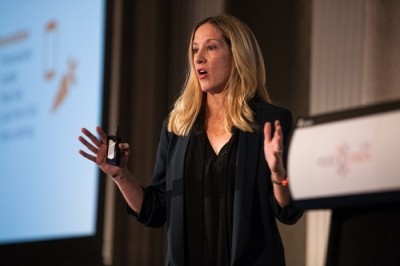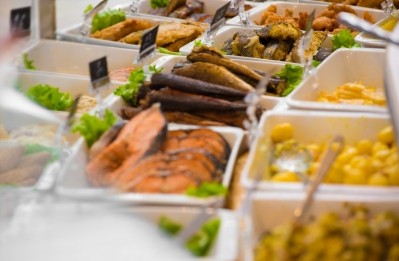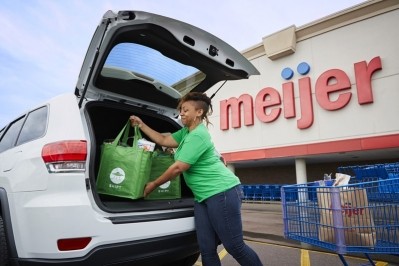Mercato founder and CEO: 'Nobody has made it easy for the independent grocer'
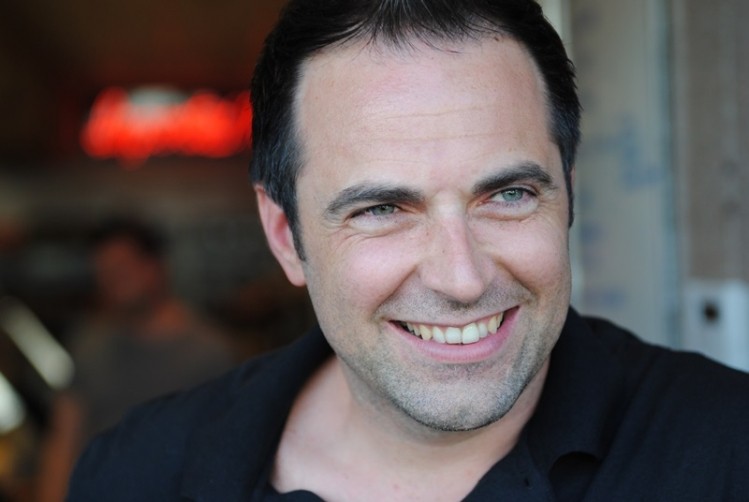
Despite the multiple e-commerce options for grocers, “no one is really approaching these stores,” Brannigan told FoodNavigator-USA. He established Mercato as an online delivery platform for smaller grocers, pairing up with restaurant delivery apps Uber Eats, Postmates, Deliv, Zipments, and DoorDash to crowdsource delivery labor.
Brannigan’s father owns B&A Pork Store in Brooklyn, an integral part of Brannigan’s childhood. With stints helping the family around the shop, he’s familiar with the stresses that come with running an independent grocery store.
“I saw that there was nobody out there providing software to make it easy for grocery stores to get online,” he said. “There were companies with their own warehouses that have their own trucks, and their own people driving trucks or stocking inventory like FreshDirect and Amazon Fresh or PeaPod.”
Then came InstaCart, which helped grocery stores create an online presence and created a shortcut for bigger chains to facilitate online ordering, “but nobody has made it easy for the independent grocer.'
Streamlined process for small stores with small staff
The concept is simple: Brannigan wanted a platform that was streamlined for both consumers and businesses.
For grocers, stores can on-board themselves, include all their inventory, and choose whether or not they’ll supply their own delivery, as well as where they’d like to deliver. If the grocer opts out of delivery, then the platform automatically connects with one of the partner food delivery apps to do this for the grocer.
In addition, with Mercato, the grocers don’t have to spend time and resources to manually upload their inventory one-by one. “We created a centralized database, and it has 140,000 products in it. It’s got product photos, nutrition content, product description, categorization, all that jazz,” Brannigan said. “And we’ve created everything from a filet mignon, to a gala apple, to a can of Campbell’s Soup.”
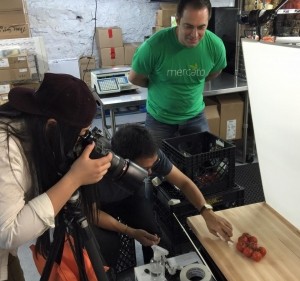
This means the grocers just need to click through images or PLUs and get all the inventory online in a few hours, crossing off what Brannigan said was one of the biggest hurdles for independent grocery stores to digitalize.
Mercato’s growth so far: Around 180 merchants, 20,000 unique customers
Starting at Brannigan’s home turf in Brooklyn back in September 2015, the service has been available in Chicago since January 2017, and in San Francisco since May. Stores on the platform include bakeries, fish stores, meat markets, produce stores, delis, pasta shops, Greek stores, Indian stores—anything that’s independent and has four or more stars on Yelp, he said.
Company statistics that Brannigan shared revealed that the platform now has 180 merchants nationwide in a little less than two years, and has 20,000 unique customers. The repeat rate is 45%, with average order frequency at twice a month.
He added that, because there aren’t many options tailored to independent grocers interested in going digital, “80% of our phone calls turns into a yes.”
Amazon’s acquisition of Whole Foods will usher in a new landscape for groceries
For Mercato, like many other digital grocery platforms, the elephant in the room is what will happen post Amazon’s full takeover of Whole Foods. “When it goes through, it’ll accelerate digital on the grocery side significantly,” Brannigan said. “We are aligned with independent grocery stores and we are their ally to help them adapt to these times.
“We have a project pipeline that just in general will help [independents] be more competitive—they’re generally very far behind from a technology perspective,” he added. “With this acquisition, it’s needed now more than ever.”
Though Mercato is now only available in three of the savviest urban centers in the US, Brannigan’s hope is that the platform can be adapted by small retailers coast-to-coast.
“Our platform is extremely scalable," he said. “If someone has a butcher store in Billings, Montana, they can get online in a day and offer delivery. (In case you were curious, Google Maps says there are four independent butcher shops in Billings, Montana).
“It’s a service that any store anywhere in the country can offer,” he added. “We hope that in the next, say five years, we hope to be in every city in America.”
